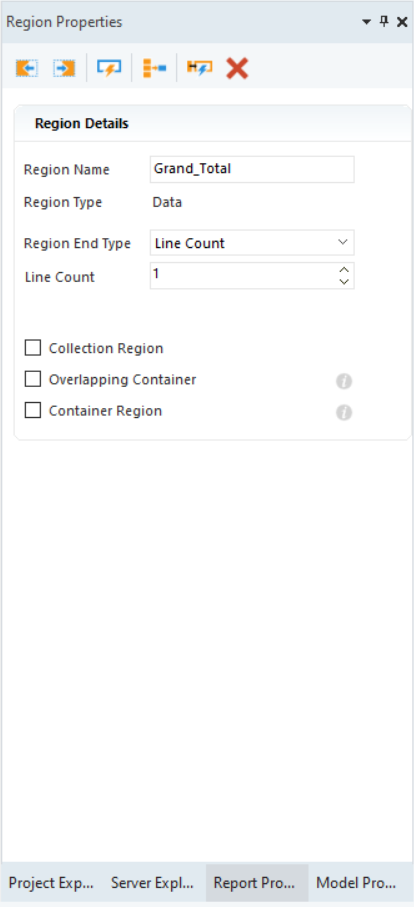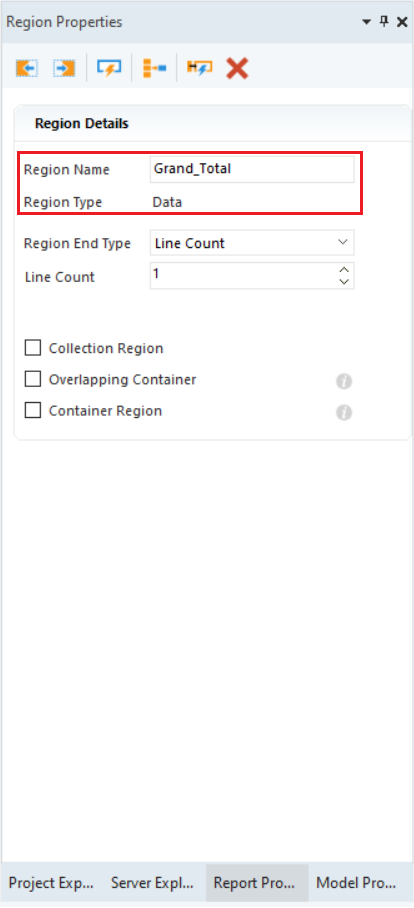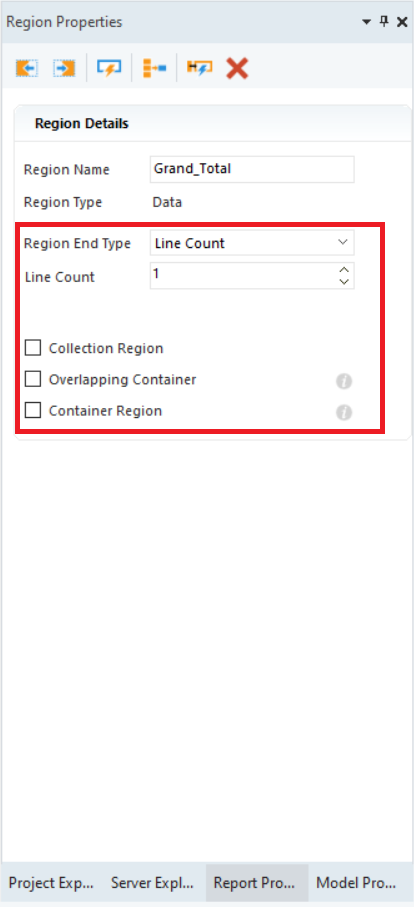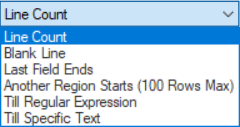Region Properties Panel
In this article, we will explore and discuss the various properties of data regions in a report model. But first, let us explore what a data region is.
What is a Data Region?
A Data Region is an area of data captured within your report. It can cover any number of lines in a source report. This area is defined by specifying a pattern.
Setting up a data region is one of the first steps of extracting data from a report. Data regions are the backbones of Report Models – they direct Astera where to extract data from.
To support the selection of data regions, Astera contains a set of Region Properties.

Region Properties Options
Move All Field Markers Left One Character: This option moves all the field markers towards the left by one character.
Move All Field Markers Right One Character: This option moves all the field markers towards the right by one character.
Auto Create Fields: This option automatically creates the data fields.
Auto Determine Field Names: This option automatically determines the field names.
Auto Create Fields (Single Instance - Beta): This option automatically creates the data fields in a single instance data region.
Region Name: Allows you to change the name of the data region.
Region Type: Tells the type of your region.

Region Details
The Region Details group-box lets you further customize your data region.

Region End Type: With the options available in the drop-down list, you can specify where you want to end your data region. The options in this dropdown menu are as follow:

Line Count: Ends your region after a specified number of lines.
Blank Line: Ends your region where a blank line occurs.
Last Field Ends: Ends your region at the last data field within your data region.
Another Region Starts (100 Rows Max): Ends your first data region where the next data region begins. This is used for variable-length data regions.
Till Regular Expression: Ends your region when the specified regular expression occurs.
Till Specific Text: Ends your region when the specific text string occurs.
Line Count: Allows the user to vary the line count according to the requirement of the data region.
Note: The Line Count option appears dynamically, depending on which option is selected from the dropdown menu of Region End Type.
Overlapping Container: Used when there are multiple data regions with overlapping lines.
Container Region: Used when a data region contains a sub-region within its boundaries.
This is how you can define and modify Region Properties in a report model.
Was this helpful?